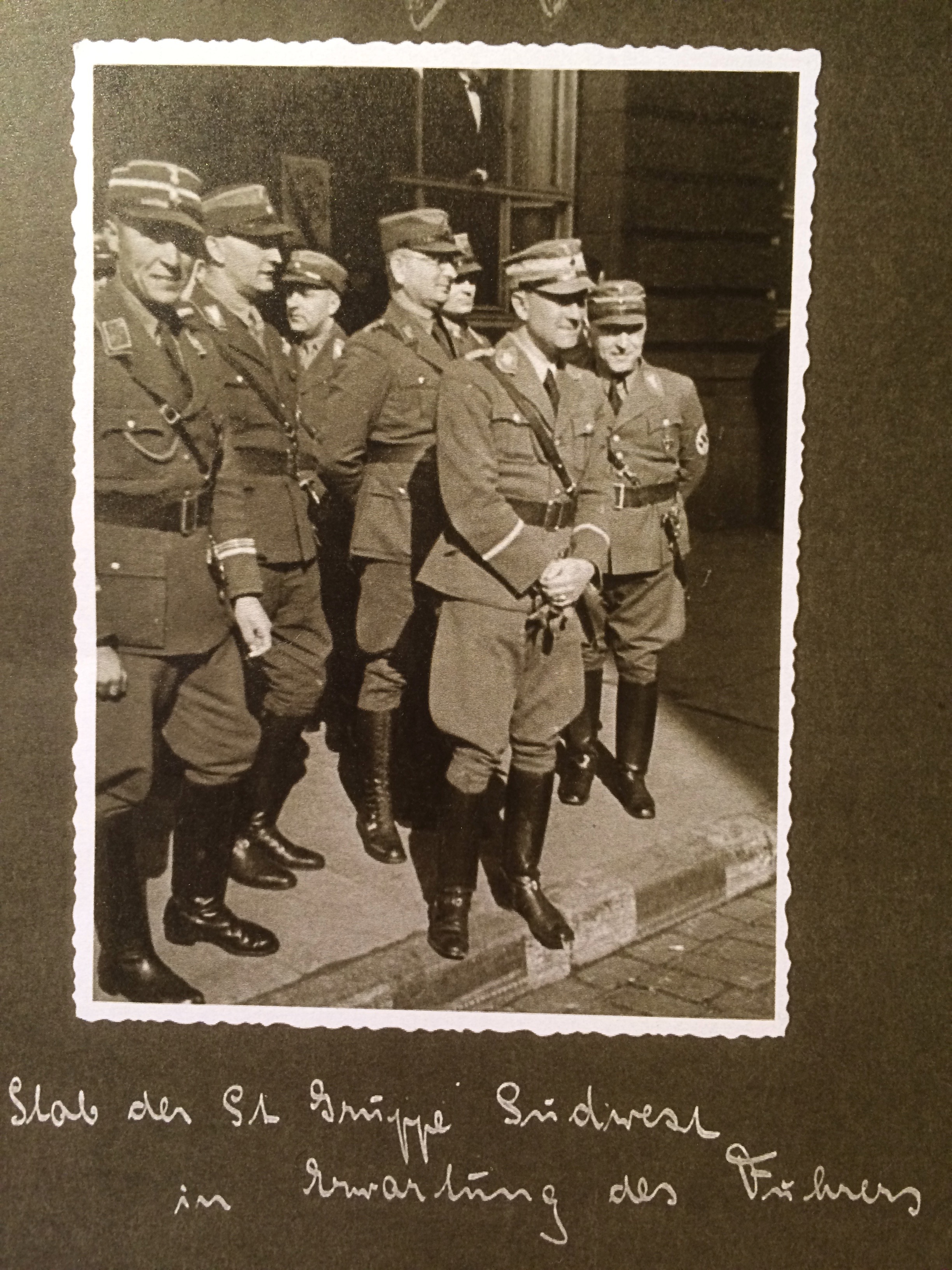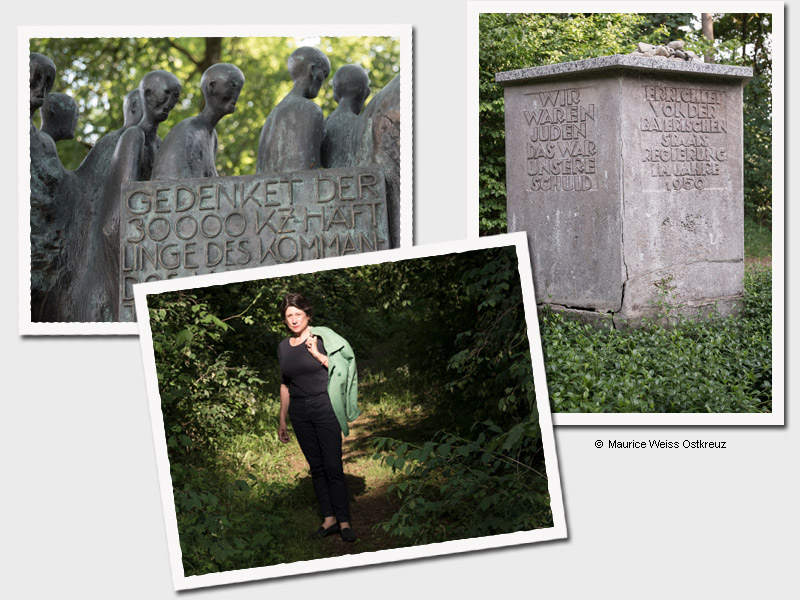Η Αλεξάνδρα Σενφτ είναι εγγονή του Χανς Λούντιν, πρεσβευτή του Γ´Ράιχ στη Σλοβακία και συνυπεύθυνου για την εξόντωση 60.000 Εβραίων. «Η καταβολή αποζημιώσεων στην Ελλάδα είναι μια ελάχιστη χειρονομία» δηλώνει.
>> weiterlesen
Archiv der Kategorie: Nationalsozialismus und Gegenwart
Das heikle Erbe der letzten Kriegsgeneration
ntv
Senfft schreibt von der großen Schwierigkeit, jener Generation gerecht zu werden, die den Zweiten Weltkrieg und den Holocaust selbst nicht zu verantworten hatte, sich aber vom „destruktiven Erbe“ ihrer Eltern kaum gelöst hätte. Die entmachteten Frauen, die abwesenden Väter und die „parentifizierten Kinder“, die als Mütter und Väter ihrer eigenen Eltern funktionierten, hinterließen in vielen Familiengeschichten verheerende Muster wie „Selbstkasteiung, Gefühlskälte, Abwertungsrhetorik, rigorose Erziehungsmethoden, unsoziales Verhalten oder politisch extremistische Haltungen“.
I Know Why Germany Still Has a Nazi Problem

Hanns Ludin
My Grandfather Was Executed as a WWII War Criminal.
It was always ‚other‘ Germans who perpetrated Nazi crimes, not our own families. That’s the lie that has enabled the far right to return to power in Germany
Haaretz March/2018
>> weiterlesen
Philippe Sands: Was in Lemberg geschah
Der englische Menschenrechtsanwalt Philippe Sands hat ein großartiges Buch geschrieben: ein fesselndes Familienmemoir, das die Geschichte von Tätern und Anklägern und die Geburtsstunde der internationalen Menschenrechte erzählt.
taz am Wochenende / 3. März 2018
>> Weiterlesen
Nazi-era thinking never went away in Germany
Far-right populists are building on ideas that survived thanks to postwar silence.
The Irish Times, February 14, 2018
>> more

How the children of Nazi Germany remember World War Two
A new book has gathered the memories of ‘Kriegskinder’, next to portraits of them as they are now. Photographer Frederike Helwig reveals how they remember childhoods in Nazi Germany. In her foreword, Senfft acknowledges how collective silence can infect wider groups. «Research … has shown that trauma and severe stress can be hereditary; that which is not dealt with can be passed on to the next generation.» And it leaches out beyond the family. «What is not brought to light and engaged with individually and within the family finds its way into society and politics.»
>> www.bbc.com/culture/story/20180123-how-the-children-of-nazi-germany-remember-world-war-two
Antisemitismusdebatte: Verwirrung der Begriffe
Der Umgang mit der internationalen Bewegung BDS zeigt,
wie Israel-Kritik prompt zum Antisemitismus erklärt wird.
Der Freitag, 02/2018 >> Weiterlesen
Suppressed memories of war in Frederike Helwig’s Kriegskinder
»Everyone portrayed [in Kriegskinder] had the courage to face the camera and tell his
or her story, to literally show him- or herself as Kriegskind,« writes Senfft.
»Their narratives are predominantly anecdotal, with different levels of reflection.
Traumas or transgenerational effects are rarely talked about, mirroring the silence
that is common til today. The readers and viewers are therefore asked to read between
the lines, to look the protagonists in the eye.«
British Journal of Photography 12/2017
>> more
Condemned to Remember
An Irish Holocaust survivor recalls the terror of the past and confronts the resurgence of the hatreds that turned Europe into a wasteland.
Genres Documentary
Director Gerry Gregg
Starring Tomi Reichental
Irish Film Board
Ireland 2017
>> more
>> watch on amazon prime
Alexandra Senfft, l’héritage du silence du Troisième Reich
Près de 70 ans après sa condamnation à mort et son exécution comme criminel de guerre, la mémoire de Hanns Ludin, ambassadeur du Troisième Reich en Slovaquie, continue à peser sur ses descendants. Alexandra Senfft, sa petite-fille, a brisé le déni familial.
La Croix, François d’Alançon, 14/08/2017
>> more

Cemetery Spötting Landsberg am Lech © Maurice Weiss/Agentur Ostkreuz
